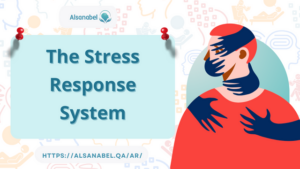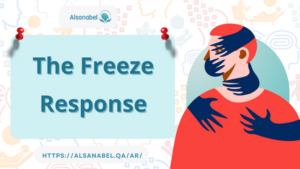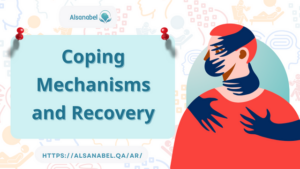Understanding the Brain's Response to Trauma 2024
- Category Mental health Qatar
Traumatic events can have a profound impact on individuals, affecting their mental and emotional well-being. Understanding how the brain responds to trauma is crucial in developing effective strategies for healing and recovery. This article will provide an overview of the brain’s response to it and highlight the impact it can have on mental health.
Table of Contents
ToggleThe Impact of Trauma on Mental Health
Experiencing trauma can have significant and lasting effects on an individual’s Mental health Qatar. Post-Traumatic Stress Disorder (PTSD) is a common outcome, characterized by intrusive thoughts, nightmares, flashbacks, and intense emotional distress related to the traumatic event. Other mental health disorders, such as anxiety, depression, and substance abuse, are also commonly associated with trauma.
Additionally, the brain’s response to it can lead to changes in brain structure and function. Chronic activation of the stress response system can alter the size and connectivity of certain brain regions, potentially impacting cognitive abilities and emotional regulation.
Understanding the brain’s response to it is crucial for clinicians and individuals working towards healing and recovery. By recognizing the impact trauma can have on mental health and implementing appropriate interventions, professionals Psychiatrists in Qatar can help individuals navigate the challenges associated with trauma and facilitate their journey towards resilience and well-being.
The Stress Response System

The brain’s response to trauma is intricately linked to the stress response system, which is responsible for mobilizing the body’s resources in the face of danger. This system involves the coordinated action of various brain regions and hormone-secreting glands. Understanding how this system works can provide valuable insights into the brain’s response to it.
The Role of the Amygdala
The amygdala, a small almond-shaped structure located deep within the brain, plays a crucial role in the stress response. When confronted with a traumatic event, the amygdala becomes hyperactive, scanning the environment for potential threats.
In the context of trauma, an overactive amygdala can lead to heightened emotional responses and hypervigilance. This can manifest as increased anxiety, fear, and difficulty regulating emotions. Individuals may also experience intrusive thoughts and memories related to the traumatic event, as the amygdala plays a key role in encoding and retrieving emotional memories.
The Role of the Hypothalamus-Pituitary-Adrenal (HPA) Axis
The stress response is further regulated by the hypothalamus-pituitary-adrenal (HPA) axis. The hypothalamus, a region at the base of the brain, releases corticotropin-releasing hormone (CRH), which signals the pituitary gland to secrete adrenocorticotropic hormone (ACTH). ACTH then stimulates the adrenal glands to release cortisol, a stress hormone.
Cortisol helps mobilize energy reserves, increases alertness, and suppresses non-essential bodily functions during times of stress. However, chronic activation of the HPA axis due to prolonged trauma exposure can disrupt the delicate balance of cortisol in the body, leading to dysregulation of the stress response system.
This dysregulation may contribute to the development of mental health disorders such as post-traumatic stress disorder (PTSD), as well as difficulties with sleep, concentration, and emotional regulation.
By understanding the roles of the amygdala and the HPA axis in the stress response system, therapists and Mental hospital in Qatar can develop targeted interventions to help individuals heal from the impacts of trauma. Techniques such as cognitive-behavioral therapy, mindfulness practices, and trauma-focused interventions aim to regulate the stress response system and promote resilience and recovery.
Understanding the Fight Response
The fight response is an instinctual reaction that occurs in the face of danger or threat. When an individual perceives a threat, the amygdala, a key structure in the brain’s stress response system, activates the fight response. This triggers the release of stress hormones, including adrenaline and cortisol, which prepare the body for action.
In the fight response, the individual may experience an increase in heart rate, blood pressure, and muscle tension. They may also feel a surge of energy, heightened alertness, and a strong urge to confront or combat the threat. This response can be seen as a protective mechanism that allows individuals to defend themselves or those they care about.
However, it is important to note that the fight response can sometimes be maladaptive, especially in situations where aggression or confrontation is not appropriate or safe. In these cases, individuals may benefit from learning strategies to regulate their response and find alternative ways to cope with the perceived threat.
Understanding the Flight Response
The flight response is another instinctual reaction to danger or threat. When confronted with a perceived threat, the amygdala activates the flight response, triggering the release of stress hormones. This response prepares the body to escape or avoid the threat.
In the flight response, individuals may experience an increased heart rate, rapid breathing, and heightened senses. They may feel an intense urge to flee or find a safe place to hide. This response can be beneficial in situations where physical escape is necessary for survival.
However, it is important to recognize that the flight response can also be maladaptive in certain situations. In some cases, individuals may have a tendency to avoid or escape from challenging or uncomfortable situations, which can limit their personal growth and hinder their ability to face and overcome difficulties.
Understanding the fight, flight, or freeze response is crucial in comprehending how the brain responds. By recognizing the role of these instinctual reactions and understanding their potential effects, Psychologist in Qatar and clinicians can develop effective interventions to help individuals recover and heal from the impact of traumatic experiences.
The Freeze Response
The freeze response is an instinctual reaction that occurs in the face of danger or threat, alongside the fight and flight responses. When an individual perceives a threat, the amygdala, a key structure in the brain’s stress response system, activates the freeze response. This triggers a cascade of physiological changes in the body.

Physiologically, the freeze response is characterized by a decrease in heart rate and blood pressure. The individual may experience shallow breathing, as their body conserves energy in a state of vigilance. This response is designed to help individuals blend in with their environment and avoid detection by the perceived threat.
Psychological Effects of the Freeze Response
The freeze response not only affects the body but also has significant psychological effects. When individuals experience overwhelming fear or trauma, their brain can activate the freeze response as a survival mechanism. This can lead to a sense of dissociation, where individuals feel disconnected from their environment and even their own body.
During the freeze response, individuals may experience feelings of helplessness and a loss of control. This can result in difficulties with decision-making and problem-solving. They may also have difficulty recalling details of the traumatic event or have gaps in their memory.
Additionally, the freeze response can have long-term effects on individuals’ mental health. It can contribute to the development of post-traumatic stress disorder (PTSD), anxiety disorders, and depression. These psychological effects of the freeze response highlight the need for trauma-informed interventions and therapies to help individuals process and regain their sense of safety and control.
The Role of Neurotransmitters
The Influence of Cortisol on the Brain
When the freeze response is activated in the face of danger or trauma, the body releases stress hormones, including cortisol. Cortisol plays a crucial role in the brain’s response. It helps to mobilize energy reserves, increase alertness, and enhance the body’s ability to cope with stress.
However, prolonged exposure to high levels of cortisol can have negative effects on the brain. It can impair memory and learning functions, leading to difficulties in processing and integrating traumatic experiences. High levels of cortisol can also disrupt the normal functioning of the hippocampus, a brain region involved in memory consolidation and emotional regulation.
The Role of Serotonin
Serotonin, often referred to as the “feel-good” neurotransmitter, also plays a significant role in the brain’s response. It is involved in regulating mood, emotions, and sleep patterns.
During traumatic experiences, there is a depletion of serotonin levels in the brain. This depletion can contribute to the development of depressive symptoms and the increased risk of developing post-traumatic stress disorder (PTSD). Low serotonin levels can also result in sleep disturbances and feelings of anxiety or irritability.
Therapies that target stress reduction and regulation of cortisol levels, such as cognitive-behavioral therapy (CBT) and mindfulness-based approaches, can help individuals manage the physiological and psychological effects. Additionally, medications that regulate serotonin levels, such as selective serotonin reuptake inhibitors (SSRIs), may be prescribed to alleviate depressive symptoms and promote emotional stability in individuals.
By recognizing the role of neurotransmitters in the response, clinicians and Psychologist in Qatar can develop comprehensive treatment plans that address the complex interplay between the brain, hormones, and emotions. This holistic approach is crucial in facilitating the healing and recovery process for individuals who have experienced trauma.
The Effects on Brain Structures
The Impact on the Hippocampus
One of the brain structures greatly affected is the hippocampus. The hippocampus plays a crucial role in memory consolidation and emotional regulation. However, when an individual experiences trauma, the high levels of stress hormones, such as cortisol, released during the freeze response can impair the functioning of the hippocampus.
Prolonged exposure to high levels of cortisol can lead to a reduction in the size of the hippocampus. This shrinkage can result in difficulties in memory and learning functions, as well as problems in processing and integrating traumatic experiences. Individuals who have experienced trauma may have trouble recalling specific details or events, and they may also struggle with regulating their emotions.
The Role of the Prefrontal Cortex
Another brain structure impacted is the prefrontal cortex. The prefrontal cortex is responsible for higher cognitive functions, such as decision-making, problem-solving, and impulse control. In individuals who have experienced it, the prefrontal cortex can become dysregulated.
Traumatic experiences can lead to a reduced ability to process information and make sound decisions. It can also impair impulse control, leading to difficulties in regulating behavior and emotions. Additionally, the prefrontal cortex may struggle to effectively communicate with other parts of the brain, resulting in increased emotional reactivity and decreased ability to cope with stress.
By recognizing the impact of it on brain structures, Mental hospital in Qatar and therapists can develop comprehensive treatment plans that address both the psychological and neurological aspects of it. This integrated approach can facilitate the healing and recovery process, allowing individuals to regain control over their thoughts, emotions, and behavior.
Trauma and Memory
Impact Memory Formation
Memory plays a crucial role in understanding lasting effects on individuals. It can have a profound impact on memory formation, leading to difficulties in recalling and processing traumatic events. During traumatic experiences, the brain’s response is focused on survival. The amygdala, a key structure involved in emotional processing, becomes highly activated, leading to the release of stress hormones like cortisol. This hyperarousal can impair the functioning of the hippocampus, a brain region responsible for memory consolidation.
As a result, memories of traumatic events may be fragmented or incomplete. Individuals who have experienced trauma often report gaps in their memory or difficulties in recalling specific details. These memory distortions can contribute to a sense of confusion and uncertainty surrounding the traumatic event.
The Role of Flashbacks
Flashbacks are vivid and intrusive memories that can retrigger the emotional and physical experiences of the traumatic event. They can be triggered by various cues, such as sights, sounds, or smells, that remind the individual of the traumatic experience. These flashbacks are a manifestation of the brain’s attempt to process and integrate the traumatic memories. When the brain is unable to properly process, these memories can resurface unexpectedly, causing intense emotional distress.
For individuals experiencing flashbacks, it is essential to provide a supportive and safe environment. Psychiatrists in Qatar interventions, such as Eye Movement Desensitization and Reprocessing (EMDR) or exposure therapy, can help the individual gradually process and reframe the traumatic memories, reducing the intensity and frequency of flashbacks.
Coping Mechanisms and Recovery
Coping with trauma can be challenging, but there are healthy strategies that individuals can utilize to support their recovery. Here are some coping mechanisms can consider:

- Seeking Support: Connecting with a support network, such as friends, family, or support groups, can provide validation, understanding, and a safe space to share experiences.
- Self-Care: Prioritizing self-care activities, such as engaging in hobbies, exercising, practicing mindfulness, and maintaining a healthy lifestyle, can help manage stress and promote well-being.
- Artistic Expression: Engaging in creative outlets, such as writing, painting, or dancing, can provide a means of self-expression and processing emotions related to the trauma.
- Establish Boundaries: Setting clear boundaries and learning to say no can help survivors regain a sense of control and protect their emotional well-being.
- Relaxation Techniques: Practicing relaxation techniques, such as deep breathing exercises, meditation, or progressive muscle relaxation, can help reduce anxiety and promote relaxation.
The Role of Therapy
Therapy plays a crucial role in the recovery by providing a supportive and structured environment for individuals to process their experiences and develop healthy coping mechanisms. Here are some commonly used therapeutic approaches:
- Cognitive-Behavioral Therapy (CBT): CBT focuses on identifying and challenging negative thoughts and behaviors that may be contributing to distress. It helps individuals develop healthier coping strategies and beliefs.
- Eye Movement Desensitization and Reprocessing (EMDR): EMDR combines elements of cognitive therapy and bilateral stimulation to help individuals reprocess traumatic memories and reduce their negative impact.
- Group Therapy: Group therapy provides a safe and supportive setting for survivors to share experiences, gain insights, and receive validation from others who have experienced trauma.
- Exposure Therapy: Exposure therapy involves gradually and safely facing trauma-related triggers to desensitize the individual and reduce the impact of the trauma on daily life.
- Mindfulness-Based Therapies: Mindfulness-based approaches, such as Mindfulness-Based Stress Reduction (MBSR) or Mindfulness-Based Cognitive Therapy (MBCT), help individuals cultivate present-moment awareness and reduce distressing thoughts and emotions.
By implementing healthy coping strategies and accessing therapy, trauma survivors can embark on a journey of healing and recovery. It is important to remember that everyone’s healing process is unique, and finding the right coping mechanisms and therapeutic approaches may require some exploration and experimentation. With time, support, and self-compassion, survivors can regain a sense of inner strength and resilience.
Resources for Trauma Survivors
Seeking support and accessing resources is crucial in the recovery process. Here are some valuable resources available:
- Therapy: Finding a qualified therapist who specializes in trauma can provide the necessary support and tools for healing. Therapists trained in trauma-specific approaches like Cognitive-Behavioral Therapy (CBT), Eye Movement Desensitization and Reprocessing (EMDR), or Mindfulness-Based Therapies can help survivors navigate their trauma journey.
- Support Groups: Joining support groups allows survivors to connect with others who have experienced similar traumas. These groups provide a safe space to share experiences, gain insights, and receive validation. Online forums and local support groups can be valuable resources.
- Hotlines and helplines: Various helplines and hotlines are available to offer immediate support for individuals experiencing emotional distress related to trauma. These helplines are typically staffed by trained professionals who can provide guidance and assistance.
- Books and self-help resources: There are numerous books and self-help resources available that provide valuable information and coping strategies for trauma survivors. These resources can be beneficial for self-paced learning and personal growth.
- Online resources and websites: There are several online platforms and websites that offer educational resources, support forums, and information about trauma and its effects. These online resources provide a convenient and accessible way for survivors to access information and connect with others.
Remember, recovery is a journey that takes time and patience. It is important to prioritize self-care, seek professional Psychiatrists in Qatar help when needed, and surround yourself with a supportive network. Every survivor deserves compassion, understanding, and the resources necessary to heal and thrive.









